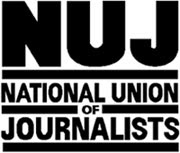One of our members has been moved to write and record a song to mark our five-day action. Here, Richard Foster, a subeditor on The Press and the paper's folk music reviewer, explains how folk music dovetails with the history of people's struggles in England. Below are lyrics to the strike song; a recording and video will follow.
I have never been on strike in nearly 30 years as a journalist, although I’ve reported on quite a few, most memorably the miners’ strike between 1984 and 1985 when I worked for local radio in Lancashire.Things I Learnt This Year (Strike Version)
So the decision by members of the National Union of Journalists at The Press, in York, to strike after eight months of fruitless pay negotiations had a big impact on me. It really churned me up. I could not settle until I had written some lyrics about the strike. I had voted against industrial action and writing this song helped me to come to terms with what it meant to go on strike.
Show Of Hands are an acclaimed folk band based in Devon. Their songwriter and main vocalist Steve Knightley wrote a song called Things I Learnt This Year. His chorus seemed to me to sum up the situation faced by those involved in the dispute, so I set about writing new verses about the York strike.
Throughout England’s history, while peasants and workers were marching, striking, fighting and being
punished by the state, radical ballads and songs have been written so the stories of particular struggles could be passed on to future generations.
For example, The Cutty Wren was written during the Peasant’s Revolt of 1381, the Diggers Song was written in 1649 when the Diggers tried to build communities on waste land, Poverty Knock is a factory workers’ song inspired by dark, satanic mills, Hanging On The Old Barbed Wire is a First World War
marching song while Coal Not Dole was written during the miners’ strike of 1984 and 1985.
Now there’s a song about this year’s NUJ strike in York. If it helps to get our message across and lifts spirits on the picket line, then it will have served its purpose.
(by Steve Knightley, of Show Of Hands, with additional lyrics by Richard Foster)
Don’t tell the world about the deal, ’til the contract’s signed and sealed.
It’s always those that didn’t pay, who cross picket lines and work all day
Drink to the fortune of your friends. Don’t waste time predicting trends.
How strange the boss who let it slip at the bar and lost his grip.
Chorus: You can be right – standing in the wrong place. You can be wrong – footed in the rat race. You can be tight, drinking ’til your head’s clear. Here’s another list of things I learnt this year.
Swap your pens for placards by nine. Hand out leaflets on the picket line.
Broadcast news on cyber space. Keep the union on the case.
A hundred years of low pay, now’s the time to win the day.
Three heads that shine in the noon-day sun leave their mark on everyone.
Chorus: You can be right – standing in the wrong place. You can be wrong – footed in the rat race. You can be tight, drinking ’til your head’s clear. Here’s another list of things I learnt this year.
Buy your food from family firms. Say goodnight on friendly terms.
Filling The Press with PR guff simply is not good enough.
Sing it out loud and clear: “Come on readers, join us here”
Remember those who have no voice. We’ve a strike to win, we’ve made our choice.
Chorus: You can be right – standing in the wrong place. You can be wrong – footed in the rat race. You can be tight, drinking ’til your head’s clear. Here’s another list of things I learnt this year.
Repeat chorus and end with “You can be right”


